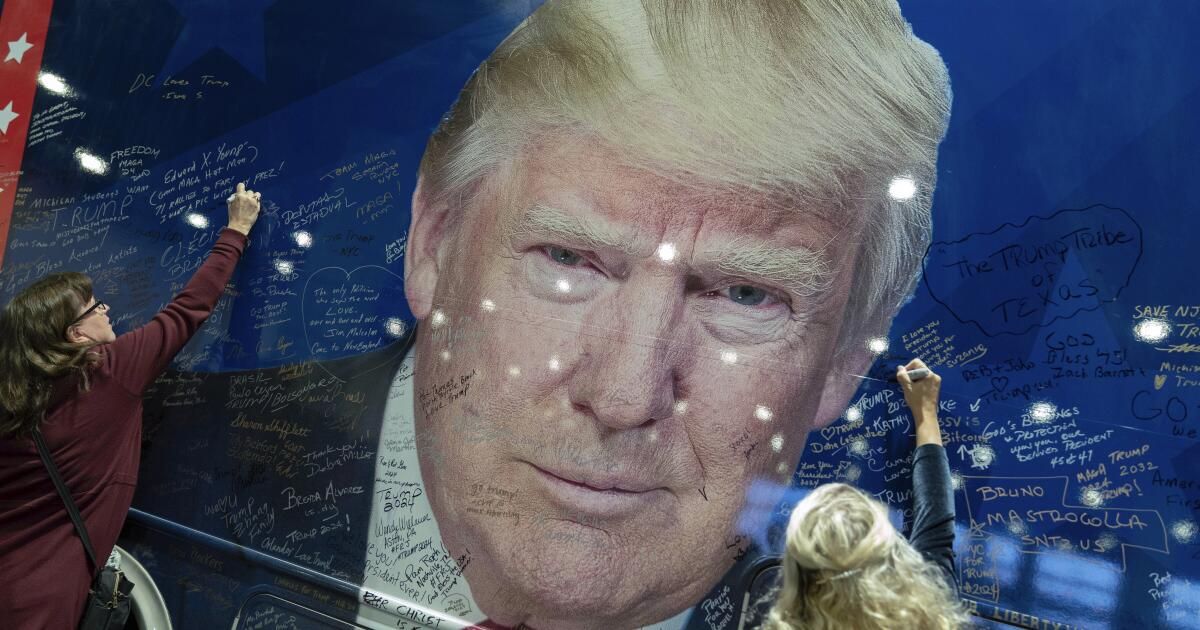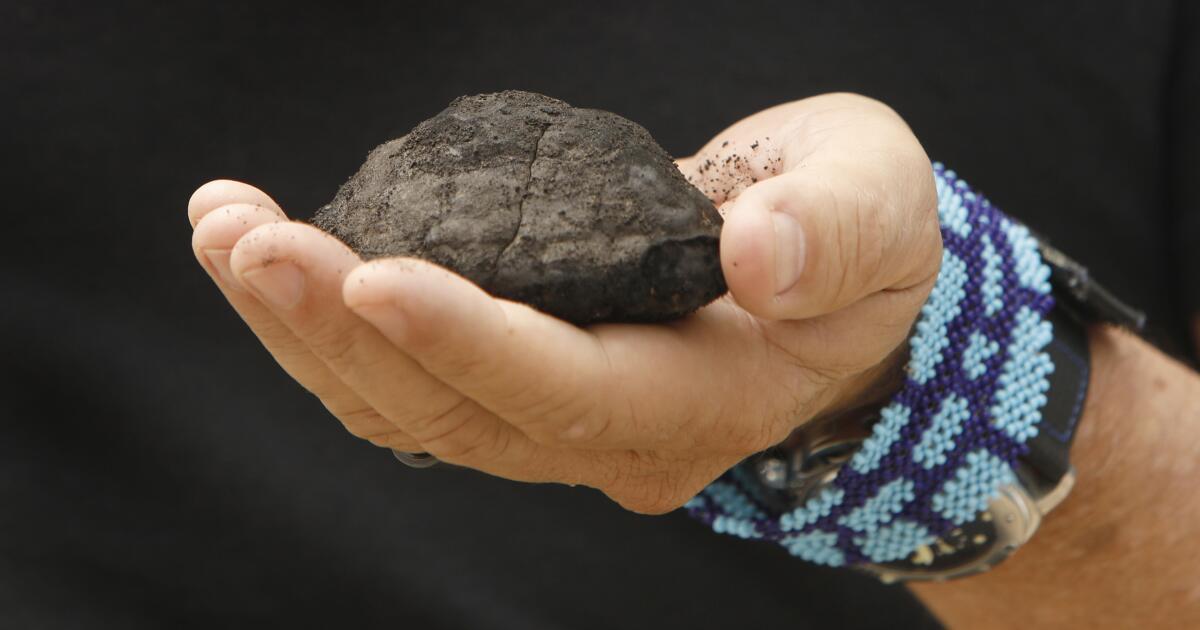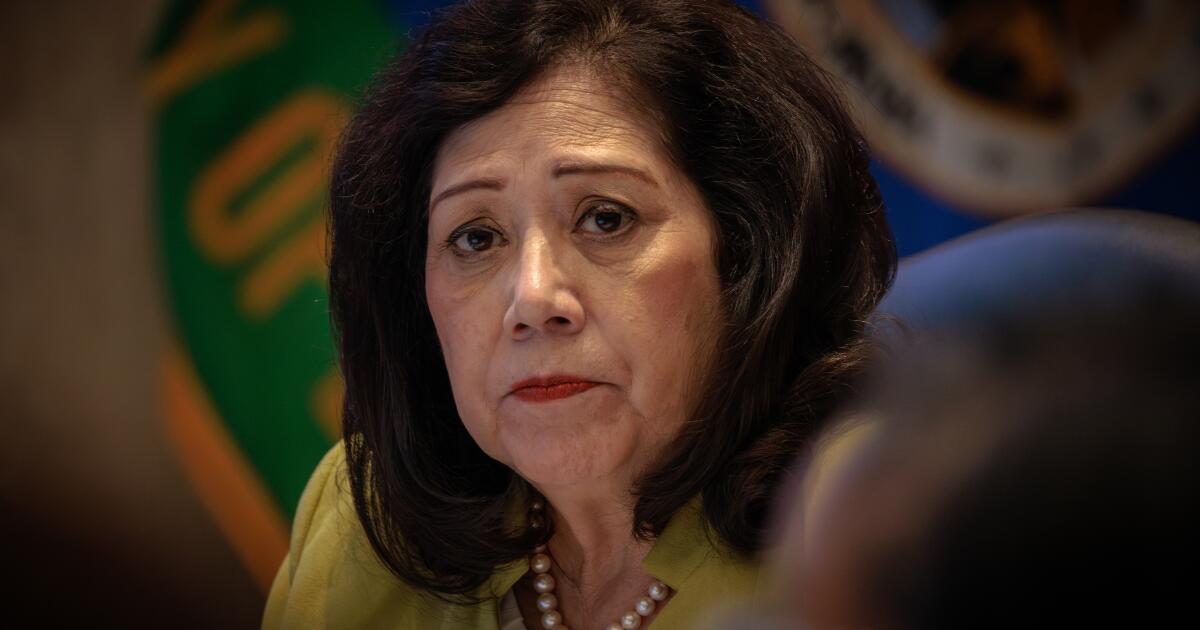Every year I ask my political science students: “What is your earliest political memory?”
I wonder what political and cultural moments… have shaped them. Over the years, their responses have mostly helped me think about the mix of perspectives in my classroom, but lately my students' responses have made me rethink modern American politics.
Why? Because most of my students can't remember a political situation in which Donald Trump wasn't the center of attention. Only a few vaguely remember Barack Obama's second inauguration in 2012.
This has serious implications for their political identity and that of the nation.
Most college students today are between 18 and 22 years old, so they were between 9 and 13 when Trump burst onto the political stage in 2015. Having come of age in the Trump era, they think about politics very differently than the rest of us.
With both parties aggressively courting Gen Z voters: This could have a radical effect on the upcoming election and should also make older voters think differently.
One important difference between the age groups is that these young voters barely knew the pre-MAGA Republican Party. Trump may still seem like an aberration to those of us who are older — a singular figure who hijacked the “real” Republican Party and remade it in his own image.
That makes it possible for many MAGA detractors, for example, to still call themselves Republicans. Groups like the Lincoln Project, websites like the Dispatch, and politicians like former Reps. Liz Cheney and Adam Kinzinger offer some of the most articulate and uncompromising anti-Trump viewpoints. Most of these arguments come from people of a certain age who still identify, at heart, as Republicans.
But for young voters, the idea of a different Republican Party may well be a historical fiction. It seems as distant to them as the Whigs or the Federalists, a story that took place a long time ago in an America far, far away.
Even my students, who are traditionally Republican and conservative, have a hard time thinking of themselves as Republicans. They prefer to be known as independents, libertarians, or even Democrats.
Those who call themselves Republicans do so. because Trump'sAccording to surveys, repeatedly shown, The young people who support the former president are also predominantly men.
This shift in perception is one reason it may prove harder to undo the Republican Party's MAGA stance than many of those who support the Never Trump movement expect. Even when Trump eventually leaves the political scene at that point, golden escalator to the beyond, He will have redefined the word “Republican” for a generation in a way that will be hard to undo.
My students have also made me see Democrats in a different way. Those of us with pre-MAGA memories can compare them Vibrations and memes around the Harris-Walz ticket to the The energy of the first Obama presidential CampaignBut most of today's college-age voters were little kids when Obama began promising “change you can believe in.”
For them, the positive momentum of the Harris-Walz campaign is much more than an echo of a previous campaign. It is a whole new way of thinking about politics, a revelation that elections can be a matter of chance. These vibrations are different for them. And they are huge.
For the first time, many college-aged voters are experiencing the happiness and the excitement that can come from joining others, sometimes in person, and commit to a shared vision of a better world. That's not a feeling that goes away. It's an important driver of engagement and action, as we're seeing not just on TikTok but also in voter registration numbers.
So when people my age say that the good vibes from Kamala Harris can't last until the election, I acknowledge that might be true — for people my age.
But for younger voters in this election, those vibrations might actually represent the deeper, more seismic tremors of a generation in motion. And I'm not so sure they'll go away before this election, or even after it.
Gen Z voters barely remember what was there before Trump. It may soon become harder to remember American politics without them.
Susan McWilliams Barndt He is a professor of politics at Pomona College.











